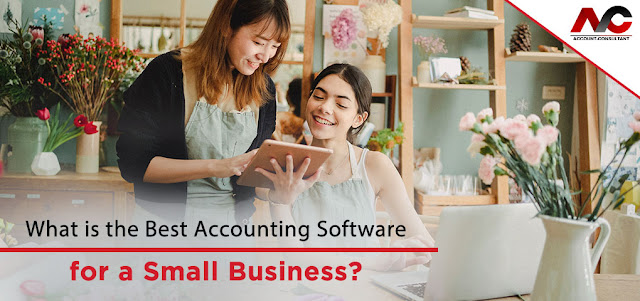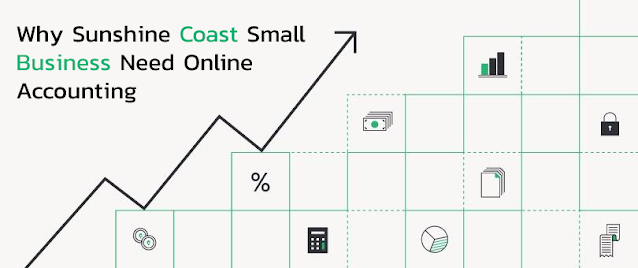How cloud accounting solution is useful for small business ?
Making the move to the cloud makes sense for your business, but it’s important to understand that not all cloud organisations have the same standards. Consider the ten factors in this guide to ensure you pick the best cloud accounting provider.
What is a cloud provider?
The cloud is part of the internet. For example, cloud storage simply means storing your files on a company’s server, with a secure connection over the internet to your computer, smartphone or other device.
Cloud Providers are similar, but they let you run applications instead of just storing files. The advantage with cloud providers is that you don't need to keep everything on your own machine. You can log in from any device using a browser or an app, and have instant access to your software and business data.
But the field of cloud services is a relatively new business. Most of the smaller cloud service companies, and the cloud departments of larger organizations, are just a few years old. This can make it hard to judge which cloud service provider is right for you.
So to help you make that decision we've come up with 10 factors that your cloud service provider should be willing to share with you. We're concentrating on cloud-based accounting providers in this guide, but the points covered can be applied to other types of cloud service provider too.
1. Show that their systems are stable and robust
If you're going to trust your financial data to someone else's software and servers, you need to know they're going to look after it. They will need to have the following systems in place:
Your data should be encrypted so that if it should fall into the hands of hackers, they won't be able to make any use of it.
Access to the service should only be possible through password authentication or other secure means.
Hardware inevitably fails from time to time, and so does software. With a sensible backup strategy that doesn't have to be a big problem.
Disaster recovery (DR) is a vital part of running a cloud business. If the unforeseen happens, such as an earthquake, tornado or other disaster, whether natural or otherwise, the business should be able to continue with minimal interruption as servers in another location take over.
These are the basics of good cloud service delivery. If you find yourself talking to an organization who doesn't have all these systems in place, walk away.
2. Demonstrate that their company is financially healthy
It’s a commitment to decide to work with a cloud provider because you will rely on their service to always keep your business data accessible and up to date.
Just as if you were buying off-the-shelf accounting software to use in-house, you'll need to know the supplier is financially healthy and able to provide ongoing support. You'll want to make sure your hard work won't be wasted, and that the company will be around for the foreseeable future.
So check out the company's balance sheets, annual reports and other financial information. Talk to an accountant. if you need help to make sense of the figures.
3. Make your information available across devices
A cloud service provider should be able to allow access to their application through a variety of devices and operating systems.
The more types of device that are supported, the easier it will be for you and your team to access. So look for a cloud provider or service who can ensure your information is available on:
For iPhone and iPad users.
For a wide variety of tablets and smartphones.
For desktop and laptop machines, and some tablets, running Microsoft's operating systems.
For desktop and laptop machines running Apple's operating systems.
Depending on the way your business is run, you may need support for other platforms too, such as Linux or Java.
4. Value their users and provide good support
These are difficult points to measure. However, most cloud accounting providers will have online community forums where people meet and exchange thoughts and ideas about the company.
They will also ask questions and, sometimes, make complaints. You can get an idea of how the company treats its users by reading through these forums and seeing how it responds to suggestions. Then look at how those suggestions are handled or resolved. You’ll be able to tell a lot about customer loyalty as well from these forums.
If the forum support staff are friendly, helpful and knowledgeable, the company is likely to value its customers.
5. Maintain good uptime
A broad range of features is of no use if the system keeps going offline or crashing. The amount of time a cloud service stays running and accessible is called its uptime.
The uptime percentage should be over 99.95% in the best cases: that's less than an hour of downtime per year.
Achieving good uptime depends on various factors. These include having the right staff with the right skills, providing investment for new servers and infrastructure, and understanding the business need for reliability.
6. Have scalable infrastructure
As your business grows, you need your accounting software to be able to grow with you. Your chosen accounting product should:
When it comes to processing power and data storage, the infrastructure needs to scale to meet your and their growing needs.
Otherwise you'll be dependent on another company that you don’t directly interact with.
An upgrade and update timetable can be useful, especially if it involves down time. You won't want to lose a connection during an important client meeting.
7. Seamlessly integrate with third-party applications
You will want to be able to compare one cloud accounting provider with another, which means you'll need to know exactly what services each one offers. Most of these providers will include that information on their website, but if not they should be able to supply it in document form for you.
But the big advantage of cloud services is that the list of features doesn't have to stop there. Most providers will have deals with partner companies and some will also allow third-party providers to create third-party applications or ‘apps.’
This works a bit like the apps stores for smartphones, or plug-ins for web browsers. It means you can get much more out of your software. So ask for a list of third-party suppliers, partners and add-ons. In some cases there may be hundreds to choose from.
8. Provide detailed billing plans
Each provider will have a different pricing structure. Find out what they will charge as you grow your business, because your requirements will grow too.
- Take a look at your existing requirements
Determine where you are today. Then you can work with your provider to forecast how things might change in the future.
See if they're willing to share information about the growth of their clients who are comparable, in terms of size, to your company.
Then study it carefully. A low up-front initial cost might not be so appealing if the costs rise exponentially as your business grows.
For example, access to Online accounting services should ideally be through your own internet connection. If you have to use a dedicated data connection instead, that may lead to unexpected costs.
9. Confirm that you can have your own data at any time
You might not want to be tied into one cloud provider forever. Circumstances change and businesses evolve, so you may want to switch providers at a later date.
Make sure you will be able to export your business data from their system whenever you want to, and in a file format that can be used by other software.
Don't get tied into one organization's product. If your deal with them comes to an end, you need to know your business data will still be safe and accessible.
10. Get everything in writing
Once you've made your decision about which provider to use, make sure you get everything in writing. Good cloud organizations should have a detailed customer data check-list, indicating that they are customer-focused. The list should include items like the location and number of the data centers; the requirements each center must comply with; emergency procedures; frequency of backups and SLAs (service level agreements).
Some of these documents will contain legal language, so get them checked with a lawyer if you have any concerns.
Now you can start working on your accounts in the cloud
There are many advantages to working with a cloud accounting service, such as having access to the service anytime and anywhere. But it's important to take your time and pick the right one.
When you’ve made your choice, use the ten factors we’ve listed in this guide, so you can start working on your financial data right away – day or night, from wherever you happen to be.
Contact us here for the cloud accounting services.





















0 comments: